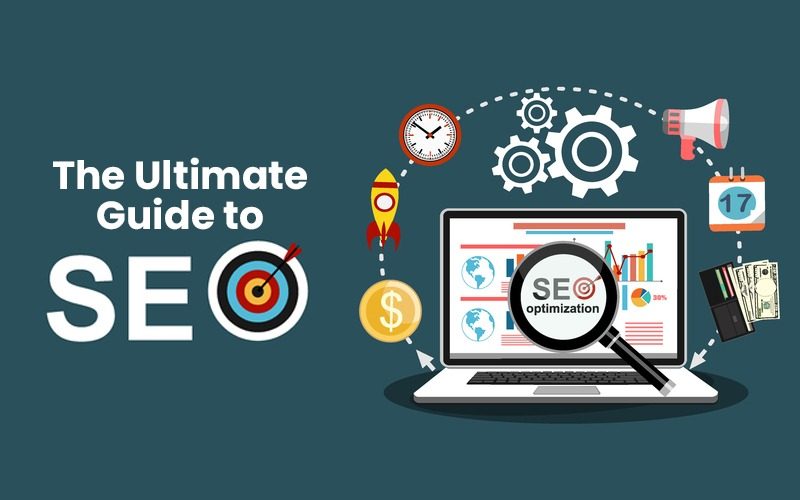What is SEO?
Search Engine Optimization (SEO) is the process of optimizing a website to improve its rankings in search engine results and drive organic traffic. Since the development of browsers in the 1990s, SEO has evolved into a key digital marketing strategy that helps businesses enhance their online presence.
Unlike pay-per-click (PPC) optimization, which involves paid advertising, SEO focuses solely on achieving higher rankings through organic search results. Both SEO and search engine marketing (SEM) are essential for businesses looking to attract customers online.
Why is SEO Important?
SEO is crucial for any business because it increases website visibility, drives user traffic, and enhances customer engagement. By implementing a data-driven SEO strategy, businesses can improve their digital marketing effectiveness and gain a competitive edge.
A strong SEO strategy ensures that your website appears at the top of search engine results, leading to better user experience and higher conversion rates. Investing in SEO research and planning provides long-term benefits for any brand.
Types of SEO
SEO can be divided into several key categories, including on-page SEO, off-page SEO, and different optimization techniques like white hat SEO and black hat SEO.
On-Page SEO
On-page SEO refers to all the actions taken directly on a website to improve its search rankings. This includes:
Content optimization: Creating high-quality, keyword-rich content that aligns with user intent.
Keyword research: Identifying the most relevant keywords to target.
Page performance optimization: Improving website speed and mobile responsiveness.
Internal linking: Structuring links within the website to enhance navigation.
Title tag optimization: Ensuring that page titles are keyword-rich and relevant.
The goal of on-page SEO is to enhance the user experience while making it clear to search engines what the page is about.
Off-Page SEO
Off-page SEO focuses on building authority and credibility for a website through external factors. This includes:
High-quality backlinking: Acquiring links from reputable websites.
Link building strategies: Implementing techniques such as broken link building, guest blogging, and email outreach.
Social media marketing: Promoting content on social platforms to increase visibility and brand awareness.
Branding: Establishing a strong online reputation through content marketing and digital PR.
A strong off-page SEO strategy enhances a website’s authority and helps search engines view it as a trusted source of information.
Black Hat vs. White Hat SEO
SEO techniques can be categorized as either white hat SEO or black hat SEO, depending on their compliance with search engine guidelines.
Black Hat SEO
Black hat SEO refers to unethical or spammy techniques used to manipulate search rankings. These tactics may result in short-term gains but often lead to search engine penalties or even website blacklisting. Common black hat techniques include:
Keyword stuffing: Overloading content with keywords.
Cloaking: Showing different content to search engines than to users.
Buying backlinks: Acquiring paid links from low-quality sites.
Hidden text and links: Using invisible keywords to manipulate rankings.
White Hat SEO
White hat SEO follows ethical practices and search engine guidelines to achieve sustainable growth. This includes:
Creating high-quality content that provides real value.
Using proper link-building strategies that follow best practices.
Focusing on user experience to improve engagement and conversion rates.
Implementing structured data to enhance search engine understanding of content.
White hat SEO ensures long-term success without risking penalties from search engines.
The Role of SEO in Digital Marketing
SEO is a fundamental component of digital marketing, impacting multiple aspects of online business strategies, including:
User traffic growth: Higher rankings lead to increased organic traffic.
Business marketing efficiency: SEO helps optimize online campaigns.
Customer engagement: Effective SEO strategies improve user experience and interaction.
Competitive advantage: Businesses that invest in SEO gain higher credibility and visibility.
SEO is a dynamic practice that continuously evolves with search engine algorithm updates. Keeping up with the latest SEO trends ensures a website remains optimized for both users and search engines.
A well-executed SEO strategy is essential for any business looking to improve its online presence. By focusing on on-page SEO, off-page SEO, and ethical optimization techniques (white hat SEO), businesses can achieve long-term growth and search engine success.
SEO is not just about ranking higher; it’s about creating a better user experience, engaging customers, and building a sustainable digital marketing foundation. Investing in SEO research and execution can lead to higher website traffic, increased brand authority, and long-term business success.

